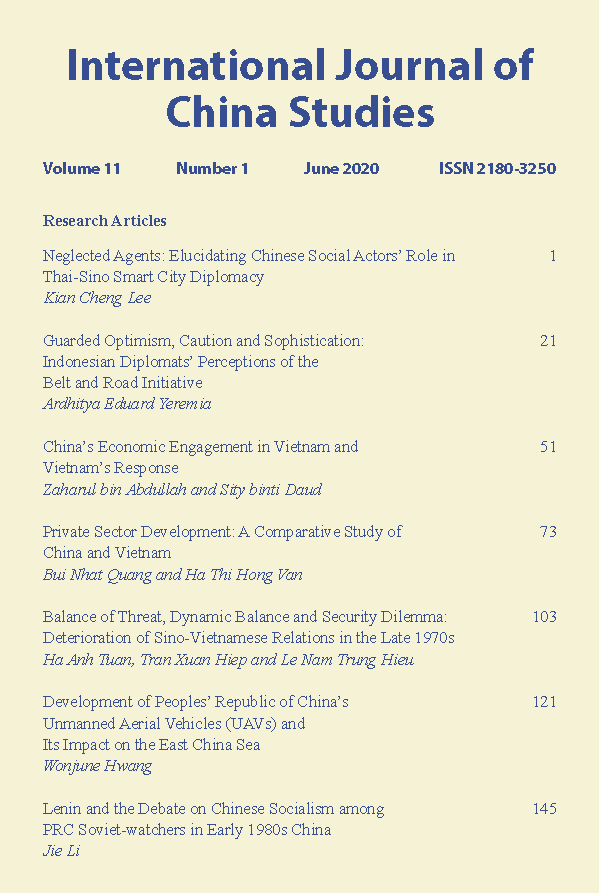China’s Economic Engagement in Vietnam and Vietnam’s Response
Keywords:
oriental globalization, role of state, trade, investment, loanAbstract
Since the normalization of Vietnam-China relations in 1991, bilateral trade relations have grown so rapidly that China has emerged as Vietnam’s major trading partner for many years. The strengthening of trade relations was subsequestly followed by increasing inflows of China’s FDI, loans and project contractors to Vietnam. The deepening of China’s economic engagement in Vietnam has led numerous studies to argue about Vietnam’s economic dependence on China indicating deterioration of the Vietnamese government’s power to manage it. The Vietnamese government’s ability to manage economic dependence on China continues to be questioned in an era of global economic uncertainty beginning with the global financial crisis of 2008 and the rise of global protectionism post-2008 heightened by the US-China trade war that has begun in early 2018. This study argues that China’s deepening economic engagement in Vietnam in terms of trade, investment, loans and project contracting has never abolished the power of Vietnamese government.
Instead, the Vietnamese government’s power was transformed or restructured as it actively implements various policies and strategies to address deepened China’s economic engagement and its impacts. However, this study also argues that the power of Vietnamese government is constrained by a variety of internal and external factors including global economic uncertainty driven by the US-China trade war.

